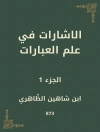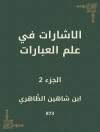How do you use social media platforms, search engines, and other forms of digital media to explore the key issues of our time? With this second edition, learn how to use the latest advancements in digital methods to answer your pressing research questions.
The new edition includes:
- A new chapter on critical social media research,
- Tips for analysing content on Tik Tok, Instagram, Twitter and more,
- Exploration of Google critique and algorithmic auditing,
- Examination of You Tube′s content removal politics and Facebook′s ′fake news′ problem.
Inhaltsverzeichnis
Part I: Beginning Digital Methods
Chapter 1: Positioning digital methods
Chapter 2: Starting with query design
Chapter 3: Preparing for critical social media research
Part II: Doing Digital Methods
Chapter4: Website history: Screencast documentaries with the Internet Archive
Chapter 5: Google critique: Auditing search engines
Chapter 6: Search as research: Repurposing Google
Chapter 7: Cultural points of view: Comparing Wikipedia language versions
Chapter 8: You Tube teardown: Deconstructing recommendations
Chapter 9: Platform and Facebook studies: Identifying engaging content
Chapter 10: Twitter as story-telling machine: Following events
Chapter 11: Visual media analysis for Instagram and other online platforms
Chapter 12: Cross-platform analysis: Co-linked, inter-liked and cross-hashtagged content
Chapter 13: Tik Tok as mimetic infrastructure: Studying imitation
Chapter 14: Tracker analysis: Detection techniques for data journalism research
Chapter 15: Summarizing digital methods
Über den Autor
Richard Rogers is Professor of New Media & Digital Culture, Media Studies, University of Amsterdam. He is Director of the Digital Methods Initiative, Amsterdam, known for the development of software tools for the study of online data. He is author of Information Politics on the Web and Digital Methods (both MIT Press) and editor of The Politics of Social Media Manipulation (with Sabine Niederer) and The Propagation of Misinformation in Social Media: A Cross-platform Analysis (both Amsterdam University Press).












